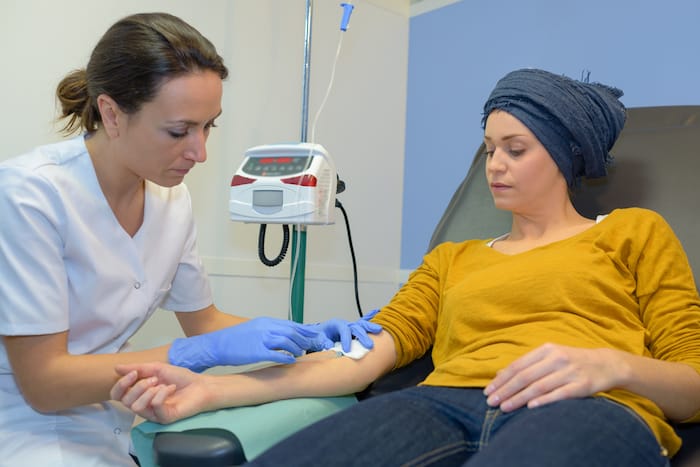Sponsors of large diagnostic trials often face multiple challenges relating to the scale and scope of their studies, such as trial design, onboarding sites, and patient recruitment. In traditional, large diagnostic trials, some of which can require over 200 sites, site procurement becomes a major obstacle for a successful trial.
The competition for trial sites can be fierce, numerous companies may be concurrently pursuing diagnostic trials that require substantial patient and site numbers, such as colorectal cancer or breast cancer screening studies. With limited clinical trial sites available at any given time, delays and extended trial periods are common as sponsors vie for available sites or work with fewer sites than necessary to meet target study timelines.
Decentralized clinical trial (DCT) technologies and services offer a clinically validated, cost-effective alternative for large diagnostic study sponsors, reducing dependence on physical sites and allowing patients to participate from local providers’ offices or their homes.
DCT eClinical platforms, when used in conjunction with virtual or hybrid site models, can provide more flexible site options for diagnostic trials. DCTs offer a flexibility that frees sponsors from the limitations and ongoing costs of operating physical study sites for extended periods. Key advantages of DCT platforms and flexible site models for large diagnostic pivotal studies include:
Minimal Risk
Diagnostic studies generally pose low risks to patients, as they typically do not involve medications or treatments. Potential safety events in diagnostic trials are usually minor, such as those resulting from blood draws, biopsies, or sample collection. DCTs are well-suited for trials like diagnostic studies that do not require frequent procedures or physical interactions between patients and trial site personnel. In addition, many procedures can be conducted in participants’ homes, either independently or with the assistance of a home health provider. eClinical platforms and universal apps facilitate close patient monitoring, high-quality data collection, telemedicine, and virtual messaging, ensuring proper patient oversight throughout the trial.
Expanded Patient Pool
Decentralizing diagnostic trials extends participation to patients who live far from physical trial sites or those who cannot travel long distances. Traditional site-based trials limit patient pools to small geographic areas, making recruitment for large-scale studies time-consuming even with multiple sites. DCT platform and virtual site models significantly broaden the participant pool by eliminating site-based restrictions on patient enrollment, consent, and participation, which can dramatically shorten trial cycles.
Promoting Health Equity
Historically, diagnostic studies have been hindered by lack of diversity among trial participants, with white males disproportionately represented. The underrepresentation of other groups compromises diagnostic trial effectiveness in making generalizations across populations.
DCT technology fosters health equity by allowing people from any location to participate in diagnostic trials, not just those with the time and means to travel or live in designated regions, ensuring greater geographic and ethnic diversity. Strategic digital recruitment tactics can additionally identify and engage underrepresented populations, extending the study’s reach beyond traditional limits. A diverse participant pool enhances diagnostic study quality and ensures accurate generalizations across entire populations.
Streamlined Management and Cost Savings
Sponsors of diagnostic studies must negotiate with each trial site and maintain their operation throughout the duration of a multi-year trial. DCT virtual and hybrid site models enable rapid study launch with tools such as preconfigured settings and user-friendly dashboards. DCT technology allows sponsors to conduct diagnostic studies more cost-effectively, with savings from not needing to operate numerous trial sites, outweighing any slightly increased per-patient costs, such as mobile phlebotomy services.
Adherence to Good Clinical Practices
Sponsors must adhere to the Food and Drug Administration’s Good Clinical Practice (GCP) guidelines, which is a set of regulations intended to ensure the integrity of clinical data, both to provide reliable supporting evidence for regulatory decision-makers and to help protect the rights, safety, and welfare of human subjects. DCTs equip sponsors with digital tools and site models for coordinating virtual or hybrid trials that comply with GCP guidelines, preserving data integrity and trial protocols as effectively as site-based diagnostic studies.
Conclusion
The challenge of securing adequate physical trial sites for large diagnostic pivotal studies can prolong trials and escalate costs. DCTs offer sponsors a lower-cost alternative to site-based diagnostic studies that makes it easier to find participants and retain them for the duration of the trial.

Storm Stillman
Storm Stillman is the chief operating officer at Curebase, whose mission is to bring quality medical innovations to patients faster and improve human well-being through more efficient clinical studies.







